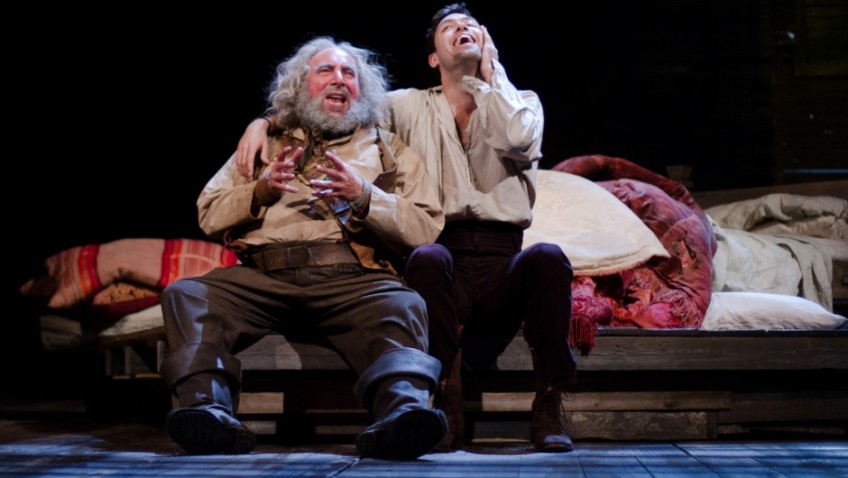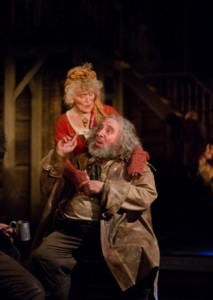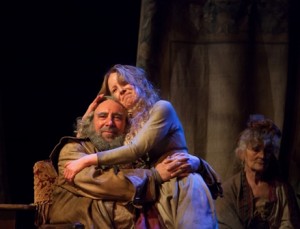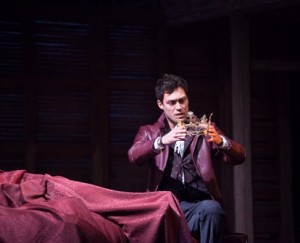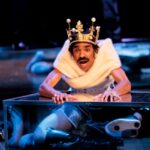Robert Tanitch reviews Henry IV Parts I and II at Barbican Theatre, London EC2
Gregory Doran’s production for The Royal Shakespeare Company is worth seeing primarily for the unexpected and successful casting of Antony Sher as Sir John Falstaff, Shakespeare’s greatest comic creation and one of the most memorable characters in theatre.
Falstaff is not only witty in himself but his enormous bulk is the cause of wit in others. His obesity is a running gag. Prince Hal describes him as “that huge bombard of flesh, that stuffed cloak-bag of guts, that roasted Maningtree ox with a pudding in his belly.”
Falstaff, a great liar and a great raconteur, is a superb entertainer. The scene, when he relates how he fought bravely with eleven men when his listeners know he fought with only two men and immediately ran away, is easily one of the very best and most popular stand-up comedy acts ever written.
Falstaff always puts his life before honour and death, knowing full well, from long experience, that the better part of valour is discretion.
Sher, who has a wonderful first entrance from under the bed in which Hal is servicing two prostitutes, does full justice to the catechism on Honour and the panegyric to Sherry.
The high spot, as always, is when Falstaff and Hal pretend to be King Henry in two mock-interviews in preparation for Hal’s real interview with his dad. It begins in such fun and ends with Hal’s devastating condemnation of Falstaff’s character.
Falstaff is a mean, selfish, lying, sponging, bragging coward, who preys on the poor, the weak and the defenceless, filling his pocket with bribes.He is totally indifferent to the fate of the soldiers under his command. Only three out of the original 150 survive in battle.
Shakespeare’s theme is the transformation of a legendary madcap Prince into an ideal medieval king. Falstaff is a totally unacceptable, either as a companion or surrogate father-figure for the future King Henry V, and Hal knows it right from the beginning of Part 1. Falstaff’s banishment from the court at the end of Part II is inevitable.
Hal (Alex Hassell) has a fine reconciliation scene with his dying and estranged dad (Jasper Britton) and a moving one with the Lord Chief Justice (Simon Thorp), when, instead of taking his revenge for harassing him, he praises him fulsomely for doing his job properly.
Oliver Ford Davies and Jim Hooper are a perfect double-act as two old, senile and corrupt justices, one of whom Falstaff fleeces to the tune of £1,000 (and we are talking about £1,000 in 1405).
Elliott Barnes-Worrell has a lot of fun with the much put-upon Eastcheap waiter, Francis. But Trevor White’s original and modern take on Hotspur emphasizes all his unlikeable faults and ignores his charismatic charm.
The two Henry plays need to be seen in the correct order and ideally on the same day or within a few days of each other when the memory is fresh. To see just Part II on its own is not a good idea.
To learn more about Robert Tanitch and his reviews, click here to go to his website
Images credit Kwame Lestrade

